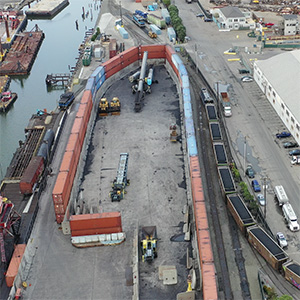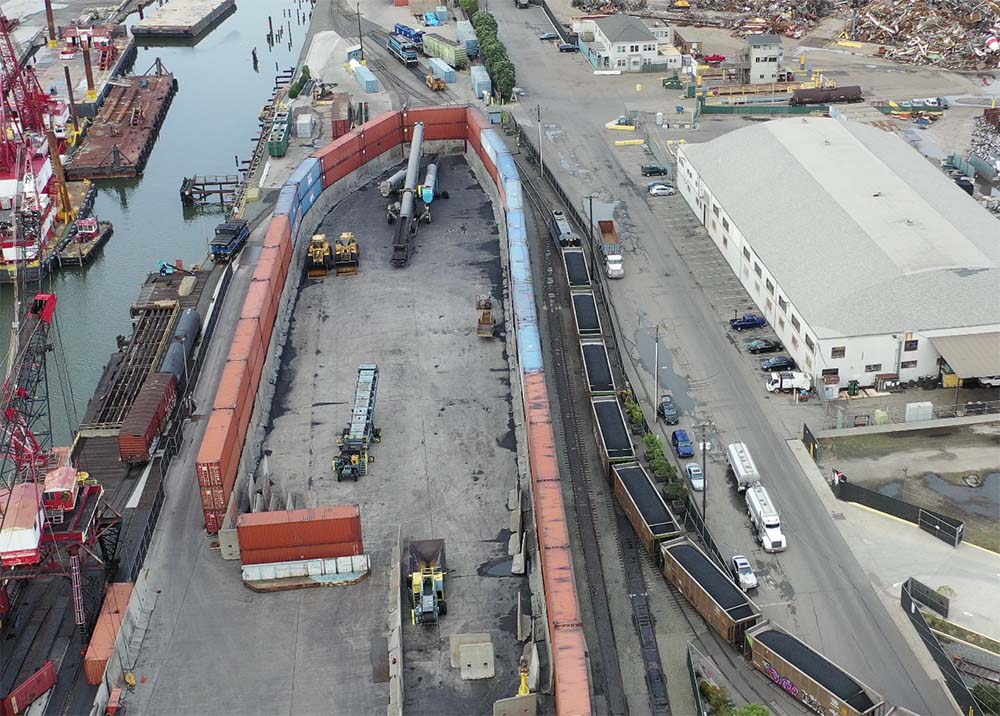
Last month’s train derailment that sent train cars carrying a million pounds of hazardous chemicals flying off the track was a horrific environmental disaster. Cancer-causing vinyl chloride spilled into the soil and two local creeks killing thousands of fish. Regulators evacuated thousands of people and then unleashed a toxic black cloud over the town to avoid an explosion. And locals criticized EPA’s response as slow, non-transparent, and untrustworthy—in part because the government initially allowed the rail company Norfolk Southern to conduct its own soil and water tests, which of course came back clean. The extent of the pollution may never be known, and the hazardous materials may never get fully cleaned up.
It happened in East Palestine, Ohio. But it could happen anywhere—even here.
 I think about that fact every time I’m near a railroad track in Berkeley, Richmond, Oakland, or Martinez when a train rolls by. In Richmond alone, more than 50,000 people live within a federally mandated evacuation zone along the rail lines.
I think about that fact every time I’m near a railroad track in Berkeley, Richmond, Oakland, or Martinez when a train rolls by. In Richmond alone, more than 50,000 people live within a federally mandated evacuation zone along the rail lines.
According to California’s office of emergency services, over 330 trains have derailed in California since the beginning of 2021. At least four of those derailments led to spills of hazardous material. All of these accidents, including the one in East Palestine, were preventable.
While investigations are still ongoing, initial reports revealed that Norfolk Southern’s train derailment was due to an overheated wheel bearing that failed – part of a braking system dating back to the 1850s. New, safer braking technologies exist; however, the rail industry’s powerful lobbyists have long pushed against new regulations to keep costs low.
That’s why environmental groups must push back. In 2015, in response to the increased number of oil trains passing through the Bay Area to get to local refineries, Baykeeper and our allies helped pass new California legislation that required railroads to prepare comprehensive oil spill response plans and demonstrate financial ability to clean up a worst-case oil spill. It also requires rail companies to give state agencies advance notice when an oil train is coming through. Then we went to court to defend that legislation and won.
It’s a good thing that California has stronger regulations, but it’s not enough simply to be prepared to respond to spills. We should be preventing spills in the first place.
We’ve worked with allies and community organizations to stop the expansion of several Bay Area oil refineries and will continue to pressure the dirty fossil fuel industry to transition to clean, renewable energy. If we can prevent trains from transporting oil and other hazardous chemicals through our neighborhoods in the first place, that will go a long way to preventing accidents like the one in East Palestine.
Pictured, above: train cars filled with coal or petcoke at the Levin Export Terminal in Richmond